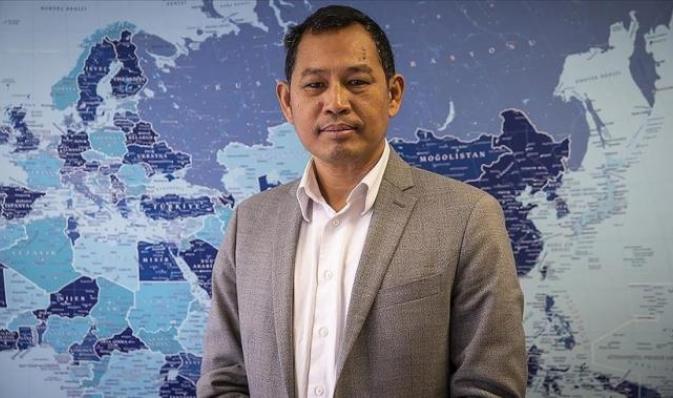
Published by TRANSCEND Media Service on November 7, 2024
Empires do NOT reform. Resilience is the term associated with the Oppressed, not the Oppressor. (Try imagine being enslaved or colonized for 300 years). With elite delusions and a popular sense of “being special/exceptional/unique/superior), Empires get toxic at home and abroad, decay, get overpowered/crushed or simply collapse. USA is no exception, except it has the capacity to bring humanity at large with it, to Hell. I do not hate Americans as a people – just another population of fellow humans, who deserve life, not more or less than any other population.
But, with every cell in my body, I absolutely loath Empires and Imperialisms, whatever their names. Some of the mightiest imperial entities – Asoka’s India and what it left behind, the Maureans of N. India with its crowning intellectual edifice of Nalanda University – (if you think everything rational and intellectual was rooted in or developed out of the European Enlightenment, you have not seen even ruins of Nalanda and what it gifted humanity), the Moguls of the latter day Indian subcontinent, the China of the Great Wall, the Angkor, the Ottoman, the Mayans, and many others. We know some of them lasted for 500 years. History has, in due course, humbled them all.
But there is this signature historical ignorance of the imperalist elite – which my dear friend Gayatri Spivak termed “sanctioned ignorance”. They are typically drunk with their own cool-aid. My street in this English countryside is littered with Oxbridge types. I can only talk to them about the weather, dogs and gardens: their very elite education did not include a single lesson on the crimes against humanity serially perpetrated by Britain during its relatively short reign vis-a-vis other empires that came, and went before the British Empire.
Historical time is not human biological life span. Whatever is unfolding before our eyes, I for one do NOT despair. I ask myself were a young African on a slaveship passing through the Middle Passage, what would I have done? Certainly, i would not have known that the Evil of Europe would go on to be institutionalized for another 400 years, but the question really is would I have jumped off the ship that was carrying me to the living Hell of Plantations far away, or would I have resisted the attempts to shackle me and my loved ones to eternity. Of course, this is all academic. For I was not there.
But I am here, living in the most wretched and horrid era of the United States taking off its mass-murderous gloves, and giving the rest of humanity the middle finger. Teddy Roosevelt was at least wiser in that he advised his power elite, to carry a big stick but speaks softly.
But the American elites have been talking crude and crass while running 750 military bases around the world and openly threatening any institution or individuals that seek to uphold international law and norms (ICC, UN, ICJ).
I have long adopted the long historical perspective – that Braudel called “long durations”. I left the United States for good – against my own interests 20 years ago, because i could no longer bear the deep pain of cognitive dissonance – benefiting from being in the belly of the beast while knowing how sick the whole place is. Yesterday, my 25-years old daughter texted me, “it’s not just Trump, Dad. All across the board. Awful country.” I knew this when she was barely 5.
I keep the faith. This Evil Empire too has its own expiry date. Take the long view, if you feel dejected by the Second Coming of Trump. Genocide Joe and thick-headed and unprincipled Kamala Harris, who also went to the same elementary school as my daughter, are also not good for humanity. Ask the Palestinians.
Have a great day!
A Buddhist humanist from Burma (Myanmar), Maung Zarni, nominated for the 2024 Nobel Peace Prize, is a member of the TRANSCEND Network for Peace Development Environment, former Visiting Lecturer with Harvard Medical School, specializing in racism and violence in Burma and Sri Lanka, and Non-resident Scholar in Genocide Studies with Documentation Center – Cambodia. Zarni is the co-founder of FORSEA, a grass-roots organization of Southeast Asian human rights defenders, coordinator for Strategic Affairs for Free Rohingya Coalition, and an adviser to the European Centre for the Study of Extremism, Cambridge. Zarni holds a PhD (U Wisconsin at Madison) and a MA (U California), and has held various teaching, research and visiting fellowships at the universities in Asia, Europe and USA including Oxford, LSE, UCL Institute of Education, National-Louis, Malaya, and Brunei. He is the recipient of the “Cultivation of Harmony” award from the Parliament of the World’s Religions (2015). His analyses have appeared in leading newspapers including the New York Times, The Guardian and the Times. Among his academic publications on Rohingya genocide are The Slow-Burning Genocide of Myanmar’s Rohingyas (Pacific Rim Law and Policy Journal), An Evolution of Rohingya Persecution in Myanmar: From Strategic Embrace to Genocide, (Middle East Institute, American University), and Myanmar’s State-directed Persecution of Rohingyas and Other Muslims (Brown World Affairs Journal). He co-authored, with Natalie Brinham, Essays on Myanmar Genocide.









